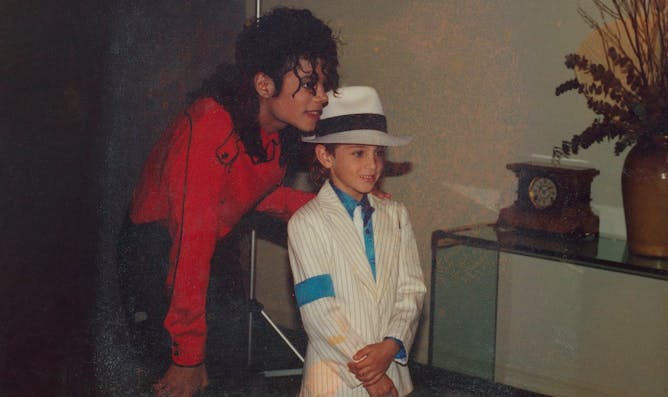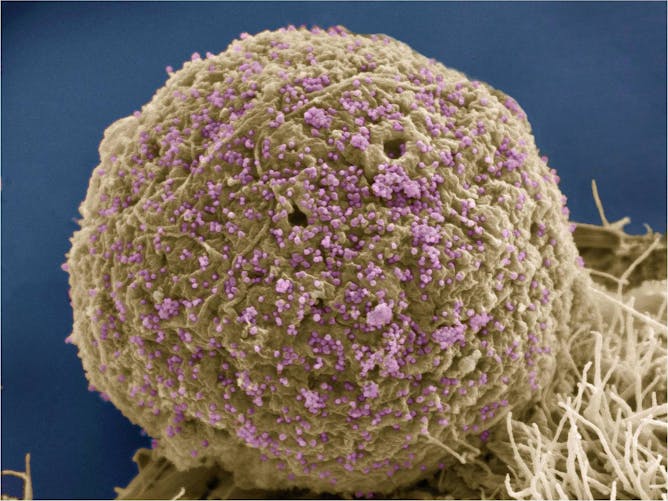|
|
|
Editor's note
|
|
Many of us watched the documentary broadcast this week regarding two men’s allegations of being sexually abused by Michael Jackson. Both alleged the pop star had won the trust of their families, leading their parents to make decisions that, in retrospect, defied reason. Both spoke of the love they had felt for Jackson, despite everything. It was vital, if harrowing, viewing which poses wider questions about claims of abuse.
In the past few months, three species previously thought to be extinct have apparently been spotted in the wild – a giant bee, a tortoise and a leopard. It turns out, the process of declaring a beast defunct isn’t particularly clear cut.
In the past few days there has been some extremely exciting news about the fight to make HIV extinct. A man in London has become the second person to enter remission from HIV following treatment for cancer. This raises fresh hope for a cure. We’ve been hearing about the science.
This week we’ve also been reading the best translations of books by French authors, measuring space weather and coming to terms with the fact that hating vocal fry might just mean you’re a fuddy duddy.
Have a good weekend.
|
Laura Hood
Politics Editor, Assistant Editor
|

|
|
|
|

Michael Jackson with Wade Robson, then aged five.
Channel 4
Nadia Wager, University of Huddersfield
A documentary film has made disturbing allegations about Michael Jackson and child sexual abuse. Whether true or not the film raised some important issues.
|

The first Fernandina giant tortoise seen in over 112 years.
Galapagos National Park Directorate
David Roberts, University of Kent
From the reappearance of giant bees to sightings of clouded leopards – can we ever be certain that a species has died out?
|

shutterstock
Amy Wigelsworth, Sheffield Hallam University
An emerging genre of fiction in France is providing an unlikely brand of escapism.
|

The human immunodeficiency virus (HIV), shown here as tiny purple spheres, causes the disease known as AIDS.
Mark Ellisman and Tom Deerinck, National Center for Microscopy and Imaging Research
Allison Webel, Case Western Reserve University
Headlines around the world declared that a second person was cured of their HIV. But while the results are encouraging, we're a long way from a cure.
|

Ink Drop / Shutterstock
Geraldine Healy, Queen Mary University of London; Mostak Ahamed, University of Sussex
Progress on gender pay issues in finance especially has been too slow, fragmented and uneven.
|

PA/Stefan Rousseau
Kenneth Armstrong, University of Cambridge
It now looks increasingly certain that the deadline for a deal will be extended beyond March 29. But what happens after that?
|
|
|
-
Lucie Green, UCL; Robert Wicks, UCL
The Lagrange mission could greatly improve forecasts of space weather.
-
Ian Whittaker, Nottingham Trent University; Gareth Dorrian, Nottingham Trent University
If SpaceX wants to take humans to the International Space Station and beyond it must pull off a safe landing of its Dragon capsule.
-
Nick Haslam, University of Melbourne; Melanie J. McGrath, University of Melbourne; Melissa A. Wheeler, University of Melbourne
An analysis of billions of words in the Google Books database shows the way society has valued moral principles such as compassion, respect for authority, community values and fairness over time.
-
Nicole Hildebrand-Edgar, York University, Canada
A linguist explains the physical technicalities and sociological meanings of creaky voice' – a sound found in diverse gender and age groups, yet often associated particularly with younger women.
-
Claire Lacey, University of St Andrews
The pressure in the deepest part of the ocean can be 1,000 times greater than the pressure we experience at sea level – but creatures that live and visit there have some very special features.
-
Armand D'Angour, University of Oxford
A new look at ancient texts allows for a pivotal perspective on the role of a certain Greek woman.
-
Gemma Witcomb, Loughborough University
For six decades, young girls have played with Barbie dolls. But she's changed a bit recently.
|
|
| |
Featured events
|

|
Mal G14, Birkbeck College, University of London, Malet Street Building , London, London, City of, WC1E 7HU, United Kingdom — University of St Andrews
|

|
Lower ground floor, Emily Wilding Davison Building, Egham, Surrey, TW20 0EX, United Kingdom — Royal Holloway
|

|
Room 103, 51 Gordon Square, London, London, City of, WC1H 0PN, United Kingdom — UCL
|

|
St Bartholomew-the-Great, London, London, City of, EC1A 9DS, United Kingdom — Royal Holloway
|
|
|
|
| |
| |
| |
| |
| |
|
|
|
|
|
|
|